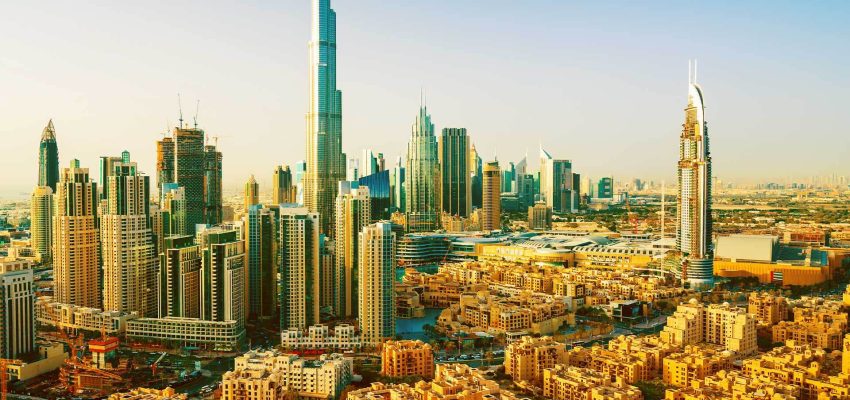
- Posted On August 23, 2023
- No Comment
Dubai, often referred to as the “City of Gold,” is a place where modern luxury and ancient traditions blend seamlessly. This vibrant city in the United Arab Emirates has earned this glittering title for several compelling reasons, ranging from its historic role in the gold trade to its contemporary status as a global hub for the precious metal. In this comprehensive article, we will explore the multifaceted aspect of Dubai’s relationship with gold, spanning from its history to its modern-day prominence.
The Historical Foundation: Dubai’s connection to gold can be traced back to its early days as a small fishing village. In the late 19th century, Dubai began to thrive as a trading port, and gold quickly became a cornerstone of its economy. Gold was not just a commodity; it was a form of currency and an essential medium of exchange. The famous Dubai Souk (marketplace) served as the epicenter of this trade, drawing merchants from across the region.
The Gold Souk: The Dubai Gold Souk, located in the heart of Deira, is an iconic market that has been at the center of the city’s gold trade for decades. It is a labyrinth of narrow streets lined with shops adorned with dazzling displays of gold jewelry, ornaments, and precious stones. Visitors are captivated by the mesmerizing sight of gold in all its forms, from intricate necklaces and bracelets to glistening wedding rings. It’s not just the quantity of gold on display that is impressive; it’s the craftsmanship and attention to detail that make the Gold Souk truly extraordinary.
Gold Beyond Tradition: While Dubai’s history is steeped in tradition, the city’s relationship with gold has evolved with the times. Today, Dubai is not just a gold trading hub; it’s a global leader in the gold market. The city has embraced innovation and cutting-edge technology to revolutionize the gold industry.

Some key aspects of Dubai’s modern gold industry include:
1. Gold Refining: Dubai is home to some of the world’s largest and most advanced gold refineries, which process raw gold into bars and other forms. These refineries adhere to the highest international standards, ensuring the purity and quality of Dubai’s gold products.
2. Gold Investment: Dubai has established itself as a prime destination for gold investors. The Dubai Gold and Commodities Exchange (DGCX) provides a platform for trading in gold futures and other commodities. Additionally, the Dubai Gold Investment Group offers a range of investment products for those interested in the precious metal.
3. Jewelry Design: Dubai has become a global center for jewelry design and manufacturing. The city’s skilled artisans create unique, contemporary pieces that cater to diverse tastes and preferences. The blending of traditional craftsmanship with modern design sensibilities sets Dubai’s gold jewelry apart.
4. Tax-Free Zone: Dubai’s status as a tax-free zone for gold trading has attracted investors and entrepreneurs from around the world. This favorable tax environment has played a pivotal role in establishing Dubai as a global gold trading hub.
The Dubai Gold Standard: Dubai’s pursuit of excellence in the gold industry has elevated it to the status of a global benchmark. Its commitment to quality, transparency, and innovation has set the gold standard for the industry worldwide. This reputation has attracted gold enthusiasts, traders, and tourists alike to experience the allure of Dubai’s gold.
Conclusion: Dubai, the City of Gold, embodies the captivating fusion of history and innovation. Its glittering past as a gold trading hub has seamlessly evolved into a modern-day marvel of the gold industry. The Dubai Gold Souk continues to enchant visitors with its dazzling displays, while the city’s role as a global leader in gold refining and trading cements its status as a preeminent destination for all things gold. As Dubai continues to grow and diversify its economy, one thing remains constant – its enduring love affair with the precious metal that has been woven into the fabric of its history and culture.